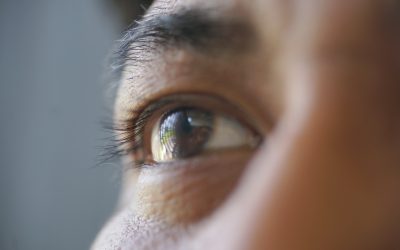OUR BLOG
Benefits of a Toric IOL
During cataract surgery, the clouded natural lens of the eye is replaced with an artificial intraocular lens (IOL) to restore clear vision. While traditional monofocal IOLs can effectively correct vision at a single distance, they may not address astigmatism, a common...
Surgery Options for Keratoconus
Keratoconus is a progressive eye condition that can have a significant impact on one's vision and overall quality of life. If left untreated, it can lead to blurred vision, a need for frequent prescription changes, intolerance for glasses, eye pain, and, in severe...
6 Things To Know About Fungal Eye Infections
When we talk about eye infections, bacterial and viral infections often come to mind. However, fungal eye infections, although rare, can occur and present significant challenges and risks. Unlike other types of infections, fungal eye infections are considered severe...
Empaveli for Dry Macular Degeneration
Age-related macular degeneration (AMD) is a degenerative eye disease that poses a significant threat to the vision of older individuals. While both dry and wet forms of macular degeneration exist, treatment options for dry macular degeneration have been limited...
Understanding Hypertension and Vision Loss
High blood pressure, also known as hypertension, is a widespread health condition that affects millions of people worldwide. While its impact on the cardiovascular system is well-documented, many people may not be aware of the potential consequences high blood...
Signs of Glaucoma in an Eye Exam
Glaucoma, a progressive eye condition with various underlying causes and presentations, can be challenging to diagnose due to its diverse nature. During an eye examination, there are several signs that an eye doctor may look for to detect glaucoma. These signs include...
Are You Ready for Cataract Surgery?
Cataract surgery is a common procedure performed to improve vision affected by cataracts. But how do you know when a cataract is ready for surgery? The presence of a cataract alone may not necessarily require immediate surgical intervention, as it may or may not cause...
Different Causes of Swollen Optic Nerves
Swollen optic nerves can have significant implications for vision, leading to reduced visual acuity, enlarged blind spots, and other associated symptoms. Usually identified during an eye examination, whether as the primary reason for the visit or incidentally, a...
Is a Retinal Detachment an Eye Emergency?
A retinal detachment is a very severe eye condition that requires immediate treatment to achieve the best possible outcome. When symptoms of a retinal detachment arise, it is important to seek care quickly so that a diagnosis can be made and the necessary treatment...
Glaucoma Tests During an Eye Exam
Glaucoma is a chronic eye condition that can eventually lead to vision loss and blindness. While there are treatment options available, there is no definitive cure for glaucoma. The treatment for glaucoma is monitored closely to evaluate for potential worsening of the...
Causes of Neovascularization in the Eye
Neovascularization is the growth of new blood vessels in response to damage or disease. The issue with neovascularization is that these new vessels can leak or break, causing significant harm to the eyes and their function. Neovascularization can occur in various...
6 Interesting Things About Macular Degeneration
Macular degeneration, also known as age-related macular degeneration, is a condition that affects the retina in the back of the eye. This serious condition is the leading cause of blindness in people over the age of 50 in the United States. There are several risk...












